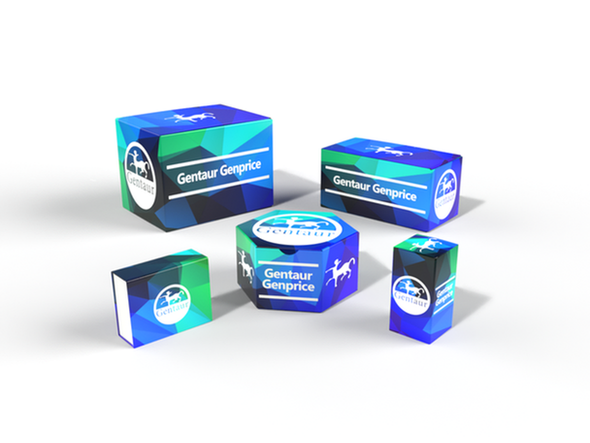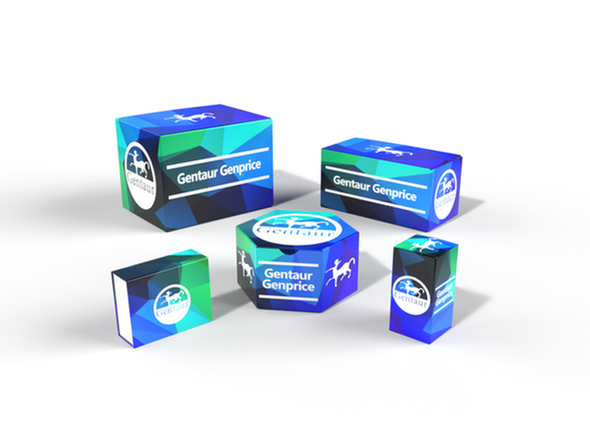BW
PKA IIα reg (P68) polyclonal Antibody | BS1929
- SKU:
- BW-BS1929
- Availability:
- Usually ships in 5 working days
Description
PKA IIα reg (P68) polyclonal Antibody | BS1929 | Gentaur UK, US & Europe Distribution
Host: Rabbit
Reactivity: Human,Mouse,Rat
Application: WB IHC IF
Application Range: WB: 1:500~1:1000 IHC: 1:50~1:200 IF: 1:50~1:200
Background: The second messenger cyclic AMP (cAMP) mediates diverse cellular responses to external signals such as proliferation, ion transport, regulation of metabolism and gene transcription by activation of the cAMP-dependent protein kinase (cAPK or PKA) . Activation of PKA occurs when cAMP binds to the two regulatory subunits of the tetrameric PKA holoenzyme resulting in release of active catalytic subunits. Three catalytic (C) subunits have been identified, designated Cα, Cβ and Cγ, that each represent specific gene products. Cα and Cβ are closely related (93% amino acid sequence similarity), where as Cγ displays 83% and 79% similarity to Cα and Cβ, respectively. Activation of transcription upon elevation of cAMP levels results from translocation of PKA to the nucleus where it phosphorylates the transcription factor cAMP response element binding protein (CREB) on serine 133 which in turn leads to TFIIB binding to TATA-box-binding protein TBP1, thus linking phospho-CREB to the pol II transcription initiation complex.
Storage & Stability: Store at 4°C short term. Aliquot and store at -20°C long term. Avoid freeze-thaw cycles.
Specificity: PKA IIα reg (P68) polyclonal Antibody detects endogenous levels of PKA IIα reg protein.
Molecular Weight: ~ 50 kDa
Note: For research use only, not for use in diagnostic procedure.
Alternative Names: cAMP-dependent protein kinase type II-alpha regulatory subunit; PRKAR2A; PKR2; PRKAR2
Immunogen: Synthetic peptide, corresponding to amino acids 50-100 of Human PKA IIα reg.
Conjugate: Unconjugated
Modification: Unmodification
Purification & Purity: The Antibody was affinity-purified from rabbit antiserum by affinity-chromatography using epitope-specific immunogen and the purity is > 95% (by SDS-PAGE) .
Pathway:






